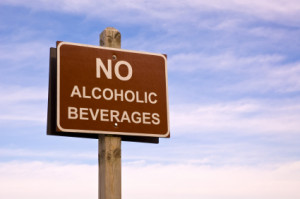- Calls to this hotline are currently being directed to Within Health or Eating Disorder Solutions
- Representatives are standing by 24/7 to help answer your questions
- All calls are confidential and HIPAA compliant
- There is no obligation or cost to call
- Eating Disorder Hope does not receive any commissions or fees dependent upon which provider you select
- Additional treatment providers are located on our directory or samhsa.gov
Research on Eating Disorders and Substance Abuse
Contributor: Crystal Karges, MS, RDN, IBCLC, Special Projects Coordinator at Eating Disorder Hope/Addiction Hope

While the reasons while mental illnesses, such as eating disorders, and substance abuse frequently overlap is not completely understood, research has offered some clues into the contributing factors that are mirrored in both of these disorders.
The Roots of Influence in Substance Abuse and Eating Disorders
Eating disorders and an addiction to drugs or alcohol may have similar roots that influence the development of these diseases. To begin, a genetic component likely make a person predisposed to having a mental illness or developing addiction to drugs or alcohol.
Our genetic make also influences a number of personality and behavioral traits, which can produce a tendency to response to situations or emotions in a particular manner. For example, individuals who are more impulsive by nature may be more susceptible to developing bulimia along with substance abuse, compared to other individuals who lack this behavioral trait.
The Biological Factors of Eating Disorders and Substance Abuse

Areas of the brain that control cognition, mood, appetite, emotions, and other important functions may be structured differently in the addict or person with an eating disorder. This may also include abnormal levels of hormones in the brain that also relate to emotion, appetite, etc., including dopamine, serotonin, and more.
Environmental Experiences
Another important factor to consider that may be present in both substance abuse and eating disorders involves environmental experiences. A person who struggles with co-occurring disorders may have experienced a traumatic event at some point of their lifetime, which may include any form of abuse, neglect, and more.
For the individual who is biologically predisposed to developing either an eating disorder or substance abuse, these behaviors may result as a means of regulating emotional disturbances.
When an Eating Disorder Becomes a Substance Abuse Problem

Similarly, a person who is struggling with substance abuse addiction may find himself or herself developing abnormal eating patterns and behaviors, even when in sobriety.
This is not uncommon, given the similar ground from which these disorders stem from. Being aware of this possible relationship can help a person in recovery better safeguard their efforts as well as seek specialized treatment for co-occurring disorders if needed.
Seeking Out Professional Treatment
If you have found yourself dealing with an eating disorder in addition to substance abuse addiction, it is important to seek out professional treatment. Adequately addressing both disorders is necessary for an individual to find healing and recovery from both the eating disorder and substance abuse.
Collaborative treatment will often involve a multiple of specialists and include medical stabilization, nutrition therapy and rehabilitation, psychotherapy, pharmacotherapy, support groups and more.
Various levels of care for co-occurring disorders exist, depending on the severity of the eating disorder and addiction. Working with a specialist can help you determine what level of care might be most effective for your recovery, allowing you to access the tools you need to heal and move forward from these devastating and destructive illnesses. If you are searching for treatment for co-occurring disorders, consider utilizing the treatment directory found on the Addiction Hope website to connect to the help you need to begin your journey today.
Community Discussion – Share your thoughts here!
Have you struggled with substance abuse and an eating disorder? From your experience, what factors contributed to the development of these co-occurring disorders? What treatment approaches did you find helpful in your recovery and ongoing sobriety?
References:
- National Institute on Drug Abuse, “Addiction and Co-Occurring Mental Disorders”, http://www.drugabuse.gov/news-events/nida-notes/2007/02/addiction-co-occurring-mental-disorders Accessed 17 July 2015
Last Updated & Reviewed By: Jacquelyn Ekern, MS, LPC on July 31st, 2015
Published on EatingDisorderHope.com
